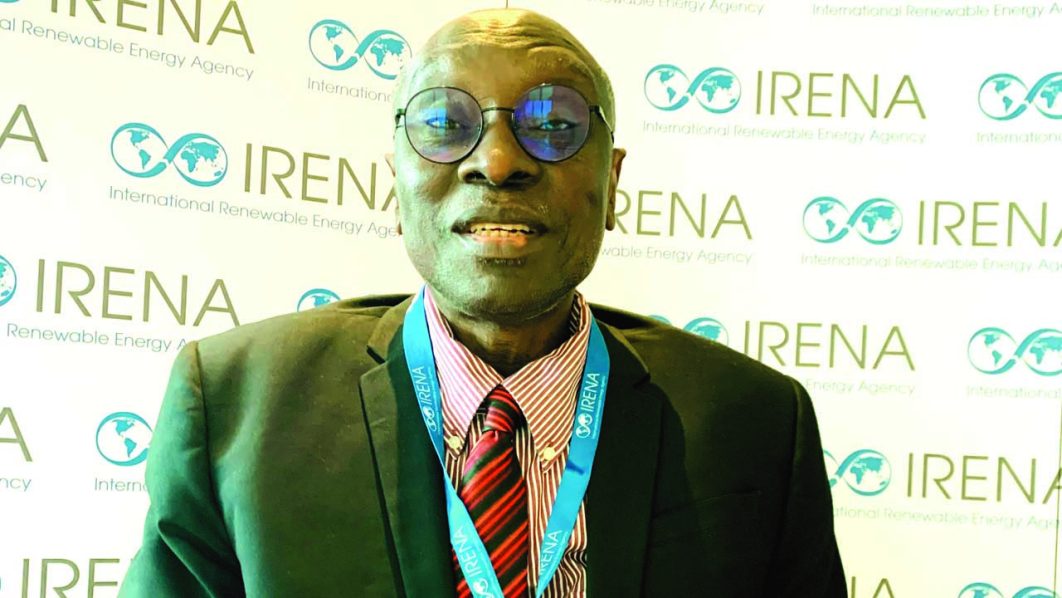
We have energy transition and renewable energy plans that require over $3 trillion to finance. Will you advise Nigeria to borrow to finance these plans?
Economists support the idea of borrowing for the sake of investment instead of consumption. If we must borrow, we must borrow to invest in our renewable energy development for production of premium electricity from clean energy sources. We want clean sources that are not environmentally unfit; we can make it sustainable. To make investment, we need to borrow to develop our capacity to have electricity from renewables in a sustainable manner.
We are presently in a transition, the world has not blocked the use of fossil fuel, so there’s demand. Fortunately, we have the resources still being exploited. The resources we are getting from export of oil and natural gas should be invested to develop sustainable energy resources and renewables. I have been advocating and indeed there’s a bill in the National Assembly that has been passed to enable the Energy Commission derive one per cent of the profit from fossil fuel companies to enable it promote renewable energy development. The funds are to support other organizations like private or government sectors. It is like grants meant for subsidizing electricity or sustainable fuels, methods, and technologies so that at the end of the day the cost would not be high. They should provide that grant to the government or private sector to ensure that the supply of clean energy is available at a cheaper cost.
Do you think we have the technology and human capacity for sustainable energy?
It has been scientifically proven that development is driven by how much energy you consume within the economy. So, there’s a relationship with countries with high GDP and the energy they consume. And technically, energy is the ability to perform work; work is productivity. That relationship has been established empirically through data. Where is this energy coming from? –You have fuels, processed heat which can be produced from fuels and electricity. Electricity can be produced from all forms of energy resources-petroleum, fossils, coal, solar, wind, renewables. Electricity becomes the most flexible and suitable, however there are other things we need to buy. Sustainable energy development enables the present generation to benefit without jeopardizing the future of the next generation. If development is driven by energy, that energy must have that phenomenon to be sustainable, which is driven through renewables and energy efficiency.
In the cross-section of the energy sector (petroleum oil, oil and gas, electricity, coal) you need a good capacity. To make sustainable development progress in energy, you need research and development, acquisition of skills, adequate theory, and theoretical background. Energy commission is supposed to have enough capacity, both experienced people in the energy sector (experience in terms of skills, and knowledge about energy transformation) and planning.
For us to do this strategic planning, we have to liaise with the international organisations because they have a very good energy planning sector. We acquire knowledge on some of their international models such as models on how to make plans, models for analysis of energy demands. We have acquired that and we have made the first projections, this will lead me to the second achievement that the honorable Commission has made.
With the national energy policy on ground, we needed to have the national energy master plan on how we could implement these policies. We started developing this master plan with the aid of IRENA experts. We did a draft, but not until 2022 that the federal executive council approved the national energy master plan. We have been having a sub-secretarial plan of national energy until last year 2022 that we got it approved.
The master plan was based on a revised national energy policy; the first one was approved in 2000 after several revisions. Finally, we revised it and made a master plan; both of them were approved in 2002. So, Nigeria has a revised energy master plan and a national energy master plan. All other plans, such as the energy transition plan, among others, must be based on something. Plans are based first and foremost on energy security, then the issue of sustainability.
Investment is believed to be challenging in Nigeria. What needs to change for us to attract investment?
The development in the energy sector should be private-sector driven, this provides the political will and legal framework. We can see that the petroleum industry has driven the development in that sub-sector towards the private sector. In the electricity sector too, we have had a reform since 2005; they are private-sector driven. This provides not only the political way, it’s also the legal framework. With respect to renewables and energy efficiency, I think the incentives have not been adequate. Those high levels are not reaching out to those who need it.
Those available are not reaching out to those who need it like the private sector. At the moment, we have the manufacturing capacity to produce small hydro, wind, solar modules, solar cells, inverters that are mostly ordered from Asia. To grow the market in the industry we need to incentivise that so consumers can afford electricity from solar, wind, small hydro.
Some of the physical incentives are there, but the implementation has been poorly done.
We import almost everything when it comes to renewable energy. Do you think we need local content law similar to that of oil and gas to change the narrative?
At the moment we should support our local industries, those incentives are there. You need to grow the market so they can easily key in, then you gradually remove the other incentives based on import so as to encourage local products.
This takes time because in Africa we don’t have the capacity for technology, there is a need for us to ensure that even as we transit, the industrial benefits come to us. When our local products are manufactured outside Nigeria, the benefits do not come to us, what we’re doing becomes just a market and it is not good for our industrialization.
Despite the load being taken by DisCos, remittance remains very poor. The renewable energy roadmap is envisaging 178,000MW. Do you think Nigerians have the capacity to pay for this electricity?
Yes, we do have the capacity to pay. If you liberalise the market, all the investors and distributors will come together and workout a model. I think the regulation is stiff, we need to give the market some free hand.
Trading essential things to our livelihood and the market has found its level. Both demand and supply has always been balancing itself. What’s more critical than food? Nothing. Nobody regulates that but the market forces. I think we are obsessed with electricity as a public good that even when we’ve reformed, we’re not letting it go. The government keeps pumping money into it; it is profitable.






